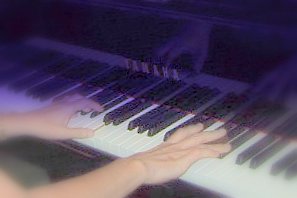Performing Arts Monterey Bay June 04, 2013


Performing Arts Monterey Bay June 04, 2013
In a recent interview Allie Jessing, who played Fiordiligi in the UC Santa Cruz production of Cosi fan tutte expressed the reasons why she enjoys performing in operas. ‘It gives me a feeling of exhilaration, of being lost in the music.’ These are prime reasons why audiences attend operas and judging by the packed house at UCSC on Saturday evening, opera is very much alive in Santa Cruz. Because this was a college venue the audience had much greater contingent of younger adults than most operas I’ve attended recently and they clearly appreciated the shenanigans on stage.
However, this story of temptation and betrayal is an uncomfortable one, and it’s this mix of humor and anxiety that makes the opera so compelling. A one-time librettist to the Italian Theater in Vienna, collaborating with Mozart in three operas, Lorenzo Da Ponte took up a similar post in London before debt caused him to flee to New York where he set up the first opera house in the United States. It is, perhaps, not so surprising then that Da Ponte, having spent much of his own life ‘in disguise’—a Jew by birth who later converted to Catholicism, became a priest and had two children with his mistress—was able to embrace the time-honored opera cliché of disguise in such a commanding way.
The plot centers on two soldiers, Ferrando and Guglielmo who take on disguises and tempt each other’s lovers to be unfaithful, in order to win a bet concocted by Don Alfonso. The comedic side of this production, whose title translates as ‘They’re All Like That’, was much to the fore in artistic director Brian Staufenbiel’s imagination when he chose to set the 1789 opera in the 1920s, at the finish line of the Tour de France. From time to time exhausted cyclists pedal across the stage adding fleeting moments of levity to the anguish felt by the two sets of lovers who are tested to find out just how fickle human nature can be, while the idyllic rustic set belies the duplicity of the plot. This juxtaposition of humor and anxiety plays out in the vocal trios, quartets and quintets when the characters are simultaneously expressing different emotions set to different words. This can present difficulties with the supertitles, but the characterization that the soloists established in this performance left us in no doubt as to their emotional states at any given time.
In the guise of members of the Albanian cycling team Ryan Bradford and Shane Liliedahl seemed to thoroughly enjoy their roles, and appeared more comfortable than in the opening scenes when they play themselves. Was this intentional? Maybe so, but perhaps it was just a case of warming to the role and the audience response as the evening progressed. The other master of disguise was Despina, played with wit and aplomb by Cora Frantz, who won the audience’s hearts from the very beginning with sassy acting skills combined with a light silvery voice. The role of Don Alfonso, admirably sung by Rolfe Dauz, is primarily a supporting role musically, though his wager is the catalyst for the whole opera. But Mozart reserved his most taxing music for Fiordiligi, played supremely by Allie Jessing. She showed impeccable vocal control especially in the bravura aria Come scoglio and she played her part throughout with poise and conviction. Her kinship with her sister, Dorabella, charmingly portrayed by Rachel Rush, was reflected in their outfits of two shades of blue, the only strong color on stage for the scene of the signing of betrothal by the notary; a strong statement from costume designer Christina Dinkel.
The well balanced opera chorus added its commentary as the storyline evolved and Nicole Paiement conducted the score with sensitivity and artistry capturing the essence and elegance of Mozart’s music.
© Heather Morris 2013